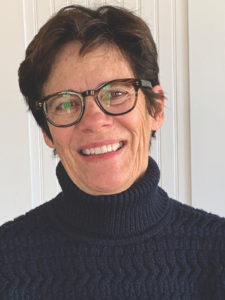PROVINCETOWN — A member of the finance committee has resigned because of the behavior of the chair, Mark Hatch, which she described as “condescending, dismissive, and even shaming.”
Dorie Seavey submitted her letter of resignation on Nov. 19, two days after the last finance committee meeting. Her letter charged that Hatch violated the committee’s own regulations on appointing a chair and vice chair — a reorganization should have been completed by July but has not yet happened. The letter also said that Hatch has refused to allow the committee to conduct an annual review of its code of conduct, as required.
“I’m not comfortable serving on a public body that does not support open communication and robust discourse,” Seavey wrote, “that is unresponsive to public concerns, and which is uninterested in rigorous compliance with the rules that govern the committee.”

Hatch said the reorganization of the board is usually done at the meeting after town meeting, and since town meeting was delayed until fall, the first FinCom meeting after that was on Nov. 17. He said reorganization would be on the next agenda.
Seavey sent her resignation letter on the same morning Hatch emailed the group to tell them it would be on the next agenda, and she missed it, she said. But Seavey, an economist and consultant who lives in Boston and Provincetown, where she is a registered voter, said that doesn’t change her overall opinion of the FinCom’s leadership.
In the 18 months she’s been on the board, Seavey said, she has tried to raise questions.
“If you speak up, you pay a heavy price,” she said. “The committee is run in a way that fosters a culture of silence.”
Her criticism joins that of others who have called out Hatch for comments on social media that they describe as rude and improper for the chair of a prominent town committee.
Reviewing the committee’s code of conduct is especially important right now, Seavey said, because the select board is considering adopting a code for behavior both at meetings and on social media. Though the select board’s code wouldn’t apply to the FinCom, its review, combined with criticism of Hatch’s social media posts, should make it clear that this is a topic people care about, she said.
When Seavey asked that the conduct code be placed on the agenda, Hatch refused.
Hatch fired back at Seavey (for this article only; he said he won’t do it on Facebook) by arguing that Seavey can get any topic on the agenda if she has four additional votes, which would make a majority of the nine-member board.
Hatch said he was unaware of the review requirement until she raised it. Never in eight years has the code of conduct been reviewed.
“My bad,” he said.
He said he has asked the committee by email to read the conduct policy and get back to him if they want to discuss changes.
Hatch explained why he doesn’t want to talk about conduct at his meetings.
“If I give it air, I am just taking the opinion of a small group of people and giving it life that it does not deserve,” he said. “It’s not our board’s purpose in life. Our board is to keep an eye on the finances of the town. And when I’m not sitting on the committee, no one should have the right to tell me what to say.”
Hatch added, however, that he has recently stopped posting comments on social media.
He charged that, while Seavey is citing his behavior, her real objection is his refusal to allow part-time residents who are nonvoters to serve as alternates on the finance committee.
Nonvoters are allowed to be committee alternates, thanks to recent town charter changes. But in February, the finance committee voted six to one to submit an article to town meeting that would remove the FinCom from the list of boards that accept nonvoters as alternates. Seavey was the only one who voted against the proposed article.
“She came on [the FinCom] with an obvious agenda, in my view,” Hatch said. “Right from the beginning, she used the same language as the second-home owners.”
Seavey denies that.
“I think there was a time when the FinCom, select board, and moderator could have taken up a more constructive dynamic with part-time residents, but those opportunities have passed, so my issues are different,” Seavey said. “My issues are to support good governance procedure by committees and boards. That’s what this is really about.”
Mary-Jo Avellar, the moderator who appoints the FinCom, remains steadfast in her support of Hatch.
“I’m not going to be the judge of conduct; it’s very subjective,” Avellar said. “Freedom of speech, even horrible speech, is still a protected right.”
Furthermore, Avellar said, the FinCom should be guiding voters on financial matters, and, in that regard, Hatch has done a fine job. Even Seavey admits Hatch understands the complexities of municipal finance.
“I’m sorry she’s not able to be with people with whom she disagrees,” said Avellar, a former select board member. “I sat on boards with selectmen who were pretty nasty, and I put up with a lot of crap at public statements. But you don’t quit.”



